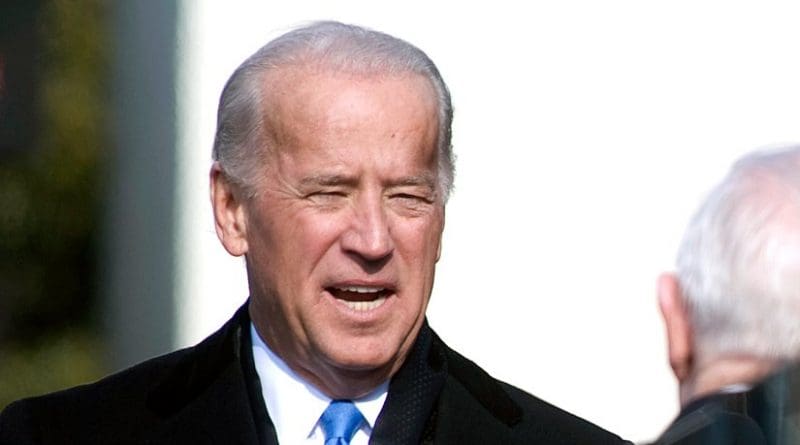China: Calls For Biden To Keep Up ‘Straightforward’ Talk On Rights
United States Vice President Joe Biden should directly address the Chinese government’s recent assault on human rights during his visit to Beijing beginning August 17, 2011, Human Rights Watch said. He should also press his Chinese counterparts for information about the status of prominent government critics, including Gao Zhisheng, Chen Guangcheng, and Liu Xiaobo, among others, Human Rights Watch said.
“Vice President Biden expressed frank concerns over arrests and disappearances to Chinese officials in Washington in May, putting human rights where they belong in a high-level interaction,” said Sophie Richardson, Asia advocacy director at Human Rights Watch. “Now he can make good on his commitment to being ‘straightforward’ by doing the same in Beijing – and in public.”
Biden’s visit will be his first since the talks in May, when he stressed the importance of human rights in the bilateral relationship and said the US would be open and candid on the topic.
The Chinese government began an aggressive crackdown on perceived dissent shortly after President Hu Jintao’s state visit to the US in January and the start of the “Arab Spring” protests in the Middle East and North Africa. Since mid-February, Human Rights Watch has documented the detention, arrest, and forcible disappearance of dozens of Chinese lawyers, civil society activists, artists, and bloggers.
The glaring disconnect between the rhetoric of China’s leaders on human rights and the rule of law and the far grimmer reality on the ground seriously undermines the US government’s aspirations for stable, constructive relations with an increasingly confident and economically powerful China, Human Rights Watch said.
Many of those targeted by the Chinese government are seeking essential elements of a healthy bilateral relationship: the free flow of information, the ability to discuss problems without fear of retribution, and transparent and consistent application of China’s laws and constitution. The lack of progress on these rights reflects China’s turn away from commitment to the rule of law, a trend that should worry US policymakers and investors alike, Human Rights Watch said.
Those targeted have included the activist-artist Ai Weiwei, who was forcibly disappeared and remained in police custody under “residential surveillance” for 80 days, until his release on June 22 after allegedly confessing to tax fraud. Chinese security forces also detained four of Ai’s associates – his driver and cousin Zhang Jinsong, his friend Wen Tao, his accountant Hu Mingfen, and designer Liu Zhenggang. The four, who were released shortly after Ai, were reportedly subjected to physical and psychological abuse while in custody.
The whereabouts of others remain unknown, including the Guangzhou-based human rights lawyer Liu Shihui, who disappeared after being brutally beaten by a group of unidentified individuals on February 20. At the conclusion of the US-China Human Rights Dialogue in April, Michael Posner, the US assistant secretary of state for democracy, human rights and labor, decried China’s “serious backsliding in human rights,” and expressed concern that “dozens of people have been arrested and disappeared with no regard to legal measures.”
Following the January state visit, Human Rights Watch urged the US to stand with independent citizens who seek change inside China, and not to revert to “quiet diplomacy.” Since late 2010, President Barack Obama, Vice President Biden, and Secretary of State Hillary Clinton have spoken publicly in defense of Liu Xiaobo, emphasized the universality of human rights, and described a litany of human rights abuses in China. It is imperative for Biden to reiterate these concerns to avoid creating an impression that US policy has changed, Human Rights Watch said.
“Vice President Biden needs to make clear to his Chinese hosts that their intensified repression undermines the development of a stable, mutually beneficial diplomatic and economic bilateral relationship between the US and China, and reiterate that it also compromises longer-term stability in China,” Richardson said.

